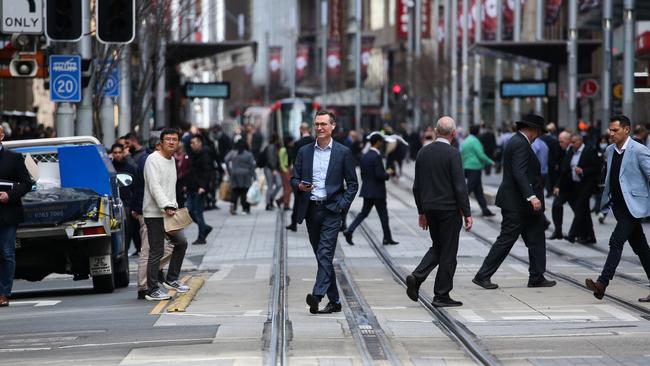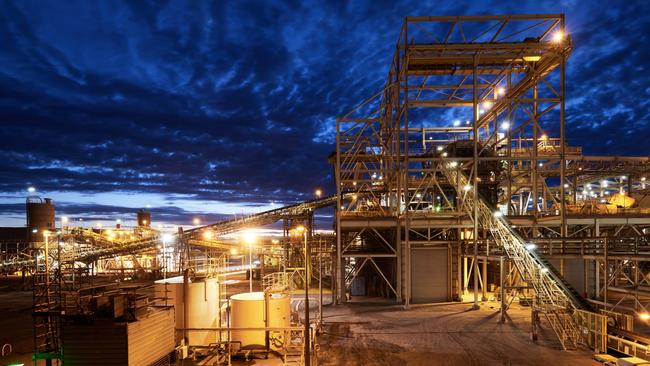Today, the Reserve Bank locked in that downturn with higher interest rates. They ignored the warnings from our largest home lender, Commonwealth Bank, about the severity of the looming mortgage stress created downturn, plus my alert that retail discretionary product demand has slumped in the last two weeks.
But the inflation-boosting strategies coming out of Canberra and the states via public sector wage rises inflamed by the FairWork engineered wage rises forced the RBA to act.
In the major eastern states capitals – Sydney, Melbourne and Brisbane – the downturn may cause a local “recession” but, nationwide, mining and agriculture may keep the nation in the black.

Many enterprises that have been chasing skills are now suddenly switching to working how they should adapt to the new conditions. Gerry Harvey at Harvey Norman has signalled that retrenchments may be ahead. Wesfarmers is cautious on the economy and is now devoting a growing part of their Bunnings stores to a market they believe will not be impacted – pets.
In Bunnings and Harvey Norman, we see two of the strategies that enterprises small and large must adopt if their markets are vulnerable to this downturn – retrenchment and seeking new markets for your services.
But there is a third strategy. With the help of new technology, revamp the way the enterprise operates. I am sure both Bunnings and Harvey Norman will add it to their adaptation process. Business managers looking to make their operations more productive should visit a McDonald’s store. They don’t have to buy a “Big Mac” to see how customers, instead of queuing at a counter, are ordering online or at “in store” computers.
Down and middle market cafes and restaurants must further improve their use of technology to offset higher labour costs. And that message applies to enterprises around the land.
But no one should forget there are a group of affluent people with money to spend. I was in a restaurant last week, where it was hard to find a bottle of wine under $140, and it was packed.
Affluent Australians having been starved of international travel during the Covid-19 years have money at the ready and newspapers with their older affluent audiences are winning a big share of the international tourist promotional dollars.
Like ANZ chief economist Richard Yetsenga, I believe that the enormous Australian, US and global funds that are being earmarked to lower carbon emissions will keep interest rates high for an extended period. This spending will underpin global economic activity, and Australia should be an enormous beneficiary in the mining and capital investment sectors. Add that to the need to build more dwellings in Australia.
Australian and global spending and the higher cost of energy will underpin inflation in Australia, as well as longer term high interest rates. To bring inflation down to the two to three per cent level will require draconian central bank action in the wake of this spending. This is simply not possible for the newly structured RBA board.

And in the US we are seeing the avalanche of money forces are emerging, causing the American economy to hold up remarkably well. But the US does not have Australia’s mortgage stress problem.
It's important to emphasise that we can only survive with a higher than expected inflation and high interest rates if that’s what is also happening in the US and around the world. If the US Federal Reserve is able to tame inflation then we will have no choice but to follow with whatever interest rates are required because, if we don’t, our dollar will be crunched
Australia’s greatest single long term threat in this environment is the attempt by the combination of the ACTU and the so-called “Employment” minister, Tony Burke, to undermine the status of contracts in Australia. The equal pay for work slogan is a smokescreen for an attack on the nation’s productivity.
The economic damage being proposed will make it very difficult for BHP to proceed with its massive copper investment in South Australia. The same will apply to many other mining and non mining projects. Dwelling building costs will explode.

We have the most wonderful opportunity to button into the huge pool of US capital being assembled by President Biden. Full marks to Prime Minister Albanese and Defence Minister Richard Marles for their work in this area.
But if they turn a blind eye to what Burke is doing to the status of contracts and productivity, then Americans will not come here to invest. More of that in later commentaries.
The RBA is correctly warning Australians of the long term dangers of inflation, but if global spending by politicians makes it impossible to curb inflation, then we must adapt. There can be benefits. For example, the impossible Second World war debts were “repaid” via inflation. But that will only work if the high inflation and interest rates are global.






All the elements are now in place for a serious downturn in key parts of the economy. But, as I explain below, there are global signs that those enterprises that get through this downturn and adapt to the new economy can prosper.